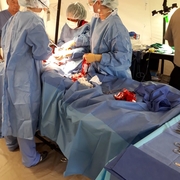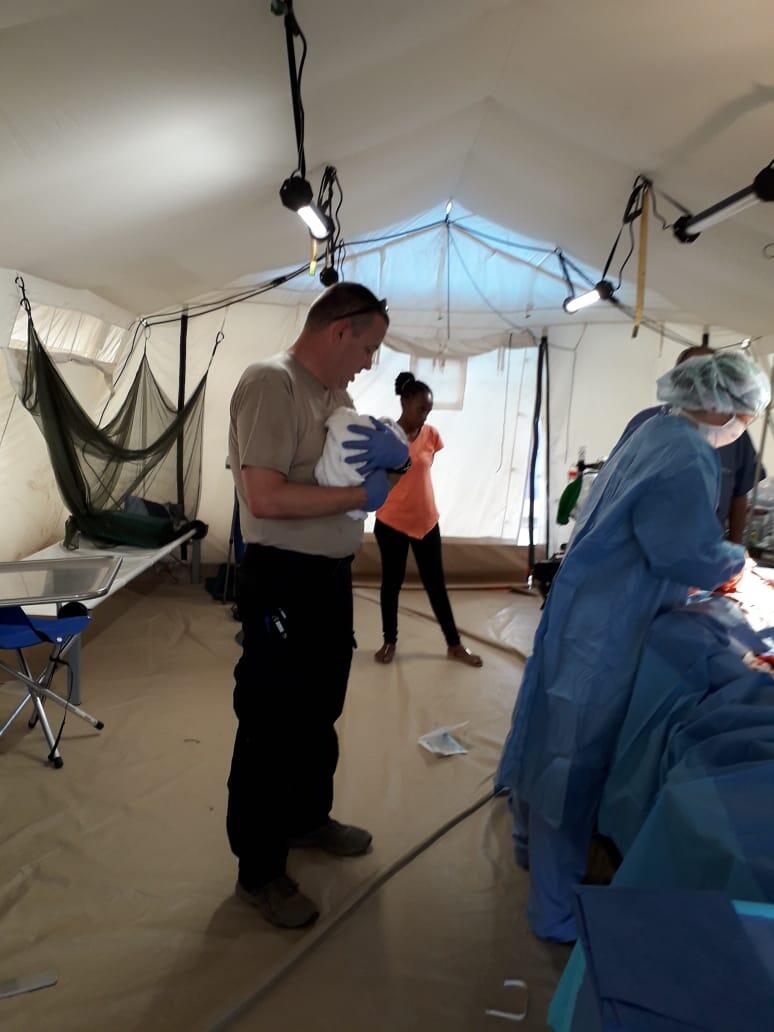As part of the response to the Cyclone Idai disaster, the United Nations Population Fund (UNFPA) provides support to ensure access to lifesaving reproductive health (RH) services for the affected population, particularly for women and girls, through the implementation of the Minimum Initial Service Package (MISP) for RH in an emergency. MISP reduce maternal and neonatal morbidity and mortality by ensuring the availability of and accessibility to lifesaving emergency obstetric and newborn care (EmONC) amongst other services. This support was provided through the United Nations joint programme (UNFPA, UNICEF and WHO) Improving Sexual, Reproductive, Maternal, Newborn, Child and Adolescent Health in Mozambique, generously financed by the Department for International Development (DfID) of the United Kingdom.
Dr. Elsa Jacinto, a senior obstetrician and gynecologist working for the UNFPA sub-office in Beira was on a mission to Buzi district to support the Provincial Directorate of Health (DPS) during the UNFPA supported National Health Week from 6-10 May when emergency struck. While visiting Buzi district hospital, a 14-year-old mother arrived at the hospital with an obstetric complication. Her contractions had started 24 hours earlier at her home in Bura. She was referred to the hospital with a vertex presentation and prolapse of the baby’s arm. Because of these risk factors, vaginal delivery was not possible and Dr. Elsa, immediately recognizing the life-threatening nature of this emergency, performed an emergency cesarean section in the operating area of the clinical tent managed by Samaritan’s Purse. The operation was successful, with both mother and baby girl's lives saved.

“It was an amazing experience for me. Through my work with UNFPA, I am able to ensure these young girls and women are able to go back to their families, villages, and camps with their babies, ready to confront their next challenge. They are still working to rebuild their lives, I am proud to join UNFPA in the effort to give them one less thing to worry about,” shared Dr. Elsa.
Thanks to her presence, a ‘safe birth, even here,” was possible. The resolution of this dramatic situation demonstrates the critical importance of timely, high-quality EmONC services, including skilled medical staff and supplies at referral health facilities.


